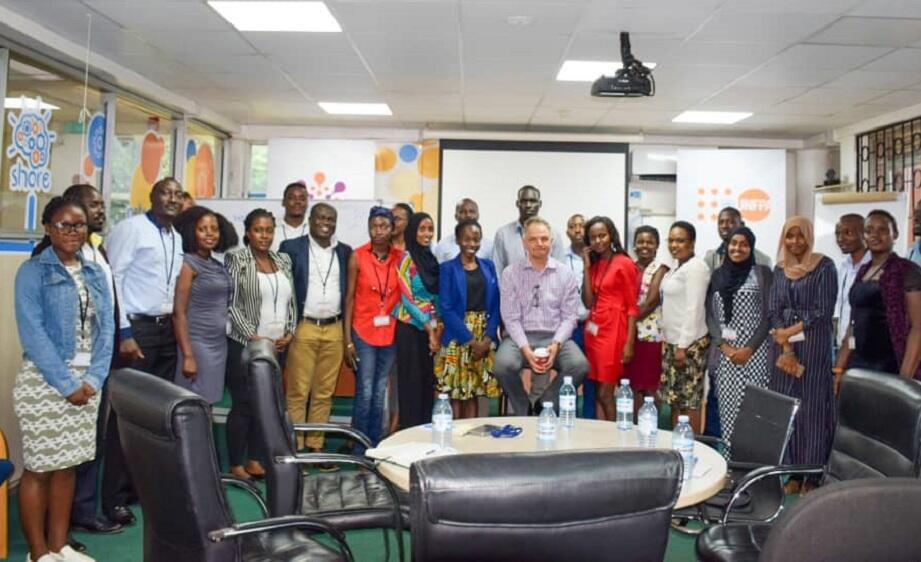Fulfilling young people’s potential lies at the heart of UNFPA’s work. Under the WITH YOU(TH) pillar of its Live Your Dream campaign, UNFPA Uganda is attempting to contribute to this critical component of the organisation’s work in a very practical way.
In line with efforts by the government of Uganda to promote entrepreneurship and find productive opportunities for its youth and address unemployment through initiatives such as the Youth Livelihoods programme, UNFPA supports government and partners to provide young people with access to skilling, and platforms for collaboration and mentorship to turn their ideas into transformative solutions.
One of the ways UNFPA does this is through the Learn from UNFPA initiative, a platform that brings together young people from various backgrounds, with an interest in social enterprise and leadership and links them with UNFPA staff who offer training sessions and mentorship on a range of subjects. The aim is to enable young leaders and managers of startups to learn how robust organizations like UNFPA conduct and manage their operations and to translate this to their own enterprises and organisations.
On June 28 2019, UNFPA Representative Mr. Alain Sibenaler facilitated the fifth Session of Learn from UNFPA, held at UNFPA’s Innovation Café. The focus of the one-hour session was Leadership and Fundraising, a continuation of the first session facilitated by Mr. Sibenaler. In attendance were about 30 young people; owners and leaders of various startups and youth-led organisations.
Speaking on the topic What leadership is and how it manifests itself, Mr Sibenaler emphasized that leadership is a trait every individual, regardless of their status or capacity, possesses. The best kind of leaders, he noted, are those who understand that leadership is multi-dimensional and are able to balance technical, managerial and political leadership as well as demonstrate multiple levels of intelligence. “If you really want to have transformational leadership then all the three aspects have to work hand in hand,” he told the young people in attendance.
On fundraising, Mr. Sibenaler highlighted that the most important aspect of fundraising is to have a clear understanding of why one comes up with a particular idea. Equally important, he noted, is to understand and apply the principles of Leadership and fundraising that he referred to as the 3A’s and 2C’s; the ability to anticipate, adapt and be accountable as well as having credibility and confidence.
Jamila Mayanja, the founder of the Smart Girls Foundation, that trains underprivileged girls on entrepreneurship, has consistently attended Learn from UNFPA sessions. “Since our first session on leadership with Mr. Sibenaler, I have learnt the importance of creating internal systems. I always thought as a small organization we didn’t need systems but after the training I have realized the importance. We are now working on developing our own code of conduct and other internal policies. And after today’s session, I really feel like a better leader,” she said.
Since the inception of Learn from UNFPA in December 2018, sessions have been held covering various areas in Leadership and Governance, Financial Management, Monitoring and Evaluation and Strategic Communications. A total of 64 young people from 21 startups have benefitted from the sessions.
Young people and entrepreneurship
By Victoria Aarakit and Anitah Nalwoga



